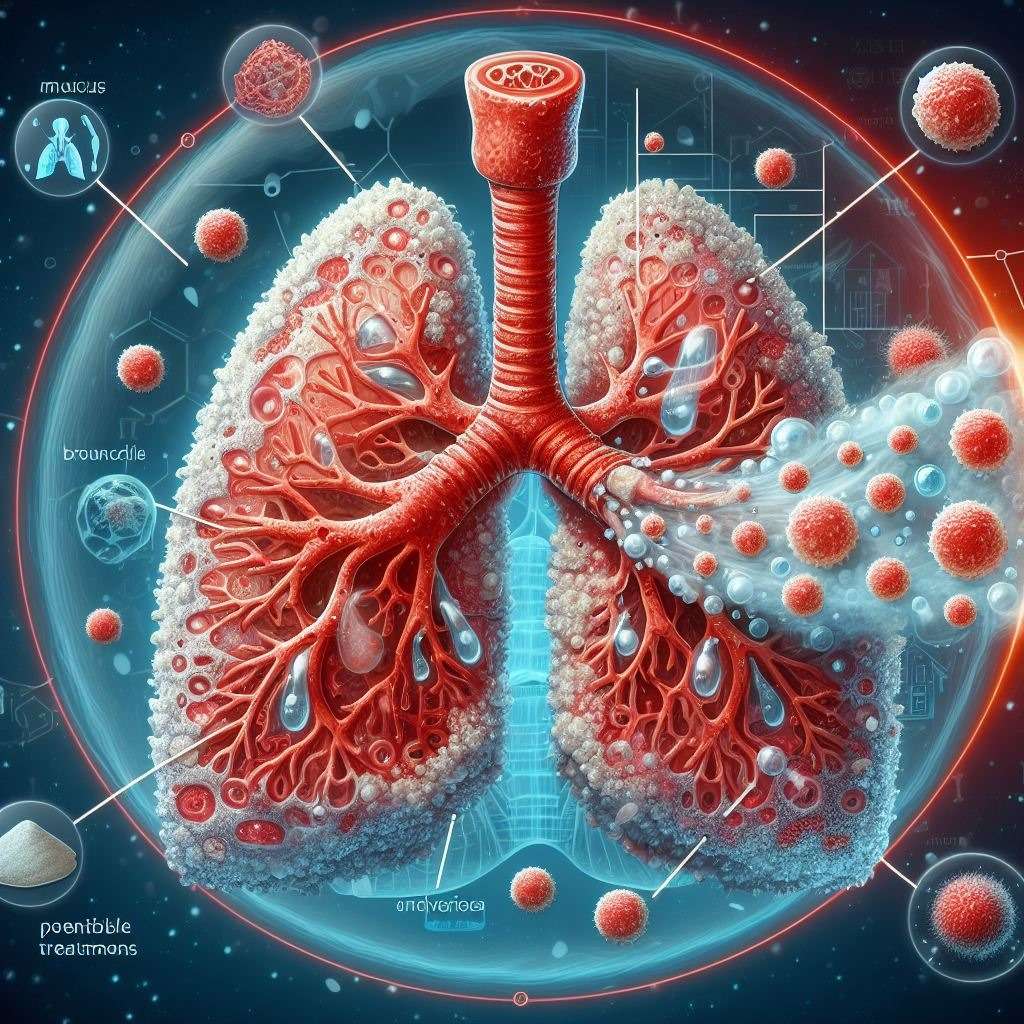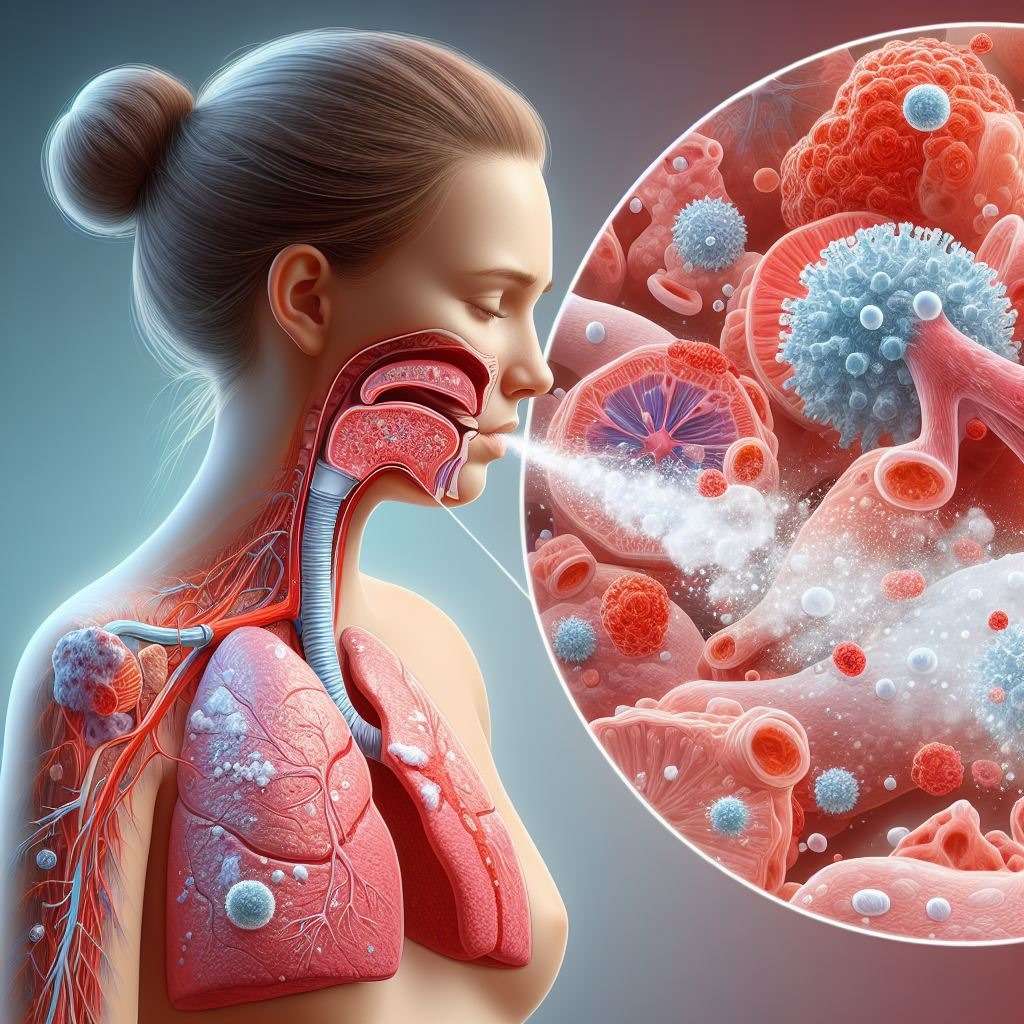1 Respiratory Infections in the Elderly:
Risks and Prevention:

Focusing on the heightened susceptibility of seniors to respiratory infections, this blog provides a comprehensive guide on preventive measures. It emphasizes the importance of vaccinations and hygiene practices to empower seniors to maintain a healthier respiratory system. By educating seniors on the risks of infections and effective prevention strategies, the blog aims to equip them with the knowledge needed to safeguard their respiratory health.
2 Adapting Home Environments for Elderly Respiratory Well-being:

This blog offers practical tips for seniors to adapt their living spaces. It addresses factors such as indoor air quality, ventilation, and allergen control, providing actionable steps to reduce respiratory irritants. The blog serves as a resource for seniors to create a comfortable and cough-free home environment, contributing to enhanced respiratory well-being.
3 Holistic Approaches to Managing Coughs in Aging Individuals:
Going beyond conventional medical interventions, this blog explores holistic approaches to managing coughs in aging individuals. It discusses the potential benefits of complementary therapies, breathing exercises, and mindfulness techniques. By embracing a holistic perspective, the blog encourages seniors to actively participate in their respiratory health management, fostering overall well-being. It emphasizes the interconnected nature of physical and mental health in the aging process, providing seniors with a holistic toolkit for managing coughs.
As we delve into the risks and prevention of respiratory infections among the elderly, the importance of vaccinations and hygiene practices becomes evident. Equipping seniors with this knowledge empowers them to safeguard their respiratory health effectively. Adapting home environments further plays a crucial role, offering practical tips to create spaces that reduce respiratory irritants, ensuring comfort and a reduced risk of coughing.
Lastly, embracing holistic approaches acknowledges the interconnected nature of physical and mental well-being in aging individuals. Exploring complementary therapies, breathing exercises, and mindfulness techniques opens avenues for active participation in respiratory health management. This holistic toolkit positions seniors to not only address coughing but also enhance their overall quality of life. In weaving these preventive measures, lifestyle modifications, infection awareness, home adjustments, and holistic approaches together, we pave the way for a future where respiratory health in our senior population thrives, allowing them to age gracefully and enjoy a fulfilling life.
4 Preventive Strategies: Boosting Respiratory Health in Seniors
Preventing respiratory issues in seniors involves a multifaceted approach that encompasses lifestyle choices, vaccinations, and proactive health management. This section explores preventive strategies aimed at boosting respiratory health in the elderly population.
4.1 Vaccinations as a Foundation:
Emphasize the pivotal role of vaccinations in preventing respiratory infections. Encourage seniors to receive regular vaccinations, including annual flu shots and pneumonia vaccines. Highlight how these vaccinations not only protect against specific infections but also contribute to overall respiratory well-being.
4.2 Regular Exercise for Respiratory Fitness:
Delve into the benefits of regular exercise in maintaining respiratory fitness. Engaging in activities such as walking, swimming, or tailored respiratory exercises strengthens the respiratory muscles and improves lung capacity. Seniors are empowered to incorporate these activities into their routine for long-term respiratory health.
4.3 Balanced Diet and Immune Support:
Explore the connection between nutrition and immune function. Discuss the importance of a well-balanced diet rich in antioxidants, vitamins, and minerals to support the immune system. Seniors are encouraged to include foods that specifically promote respiratory health, fostering overall immune resilience.
4.4 Hydration and Respiratory Hygiene:
Highlight the significance of proper hydration in maintaining respiratory health. Adequate fluid intake ensures optimal mucus production and helps keep the respiratory tract moist, reducing the risk of irritation and coughing. Additionally, discuss respiratory hygiene practices, such as proper cough etiquette, to minimize the spread of respiratory infections.
4.5 Avoiding Environmental Irritants:
Educate seniors on identifying and avoiding environmental factors that may irritate the respiratory system. This includes minimizing exposure to secondhand smoke, reducing time spent in highly polluted areas, and ensuring good indoor air quality. Proactive steps in environmental management contribute to a healthier respiratory environment.
By adopting these preventive strategies, seniors can actively contribute to their respiratory well-being, reducing the likelihood of coughing episodes and enhancing their overall quality of life.
5 Influence of Lifestyle Factors on Elderly Coughing Incidence
Lifestyle choices play a significant role in shaping the respiratory health of seniors, influencing the incidence of coughing episodes. This section delves into specific lifestyle factors that can impact coughing in older adults and provides insights for making informed choices.
5.1 Smoking Cessation for Respiratory Wellness:
Address the profound impact of smoking on respiratory health. Seniors who smoke are at a higher risk of chronic cough and respiratory conditions. This section emphasizes the importance of smoking cessation programs and resources available to support seniors in quitting smoking for improved respiratory well-being.
5.2 Environmental Pollutants and Indoor Air Quality:
Explore how exposure to indoor pollutants can contribute to coughing in seniors. Discuss common indoor pollutants, such as dust, pet dander, and mold, and guide on reducing exposure. Creating an environment with good indoor air quality is paramount in minimizing respiratory irritation.
5.3 Living Conditions and Respiratory Comfort:
Examine how the living conditions of seniors can influence coughing incidence. Discuss the importance of well-ventilated living spaces, proper humidity levels, and allergen control measures. Seniors are encouraged to create a comfortable home environment that promotes respiratory well-being and reduces potential triggers for coughing.
6 Psychosocial Factors and Stress Reduction:
Acknowledge the impact of psychosocial factors on respiratory health. Stress and anxiety can exacerbate coughing episodes in seniors. Discuss stress reduction techniques, mindfulness practices, and the importance of maintaining positive mental health to create a holistic approach to respiratory wellness.
7 Hydration Practices and Respiratory Hygiene:
Reinforce the role of hydration in minimizing coughing episodes. Seniors are encouraged to maintain adequate fluid intake to support optimal mucus production and respiratory function. Additionally, highlights the importance of respiratory hygiene practices, including proper cough etiquette, to prevent the spread of respiratory infections.
By understanding the influence of these lifestyle factors, seniors can make informed choices that positively impact their respiratory health, leading to a reduction in coughing incidents and an improved overall quality of life.
8 Respiratory Infections in the Elderly:
Risks and Prevention
Respiratory infections pose a significant threat to the elderly population, often leading to coughing episodes and increased vulnerability. This section explores the specific risks associated with respiratory infections in seniors and provides insights into effective preventive measures.
8.1 Identification of Common Respiratory Infections:
Discuss prevalent respiratory infections that pose risks to seniors, including the flu, pneumonia, and bronchitis. Highlight the symptoms and potential complications associated with these infections, emphasizing the importance of early recognition and intervention.
8.2 Vaccinations as a Shield:
Emphasize the crucial role of vaccinations in preventing respiratory infections. Seniors are encouraged to receive annual flu shots and pneumonia vaccines as a proactive measure against infection. Discuss the effectiveness of vaccinations in reducing the severity of symptoms and preventing complications.
8.3 Hygiene Practices for Infection Prevention:
Stress the importance of good hygiene practices in preventing the spread of respiratory infections. Seniors are educated on proper handwashing techniques, respiratory etiquette, and other hygiene measures that reduce the risk of contracting infections in various settings.
8.4 Awareness of Environmental Factors:
Explore how environmental factors can contribute to respiratory infections in seniors. Discuss the impact of indoor air quality, exposure to pollutants, and crowded living conditions. By raising awareness of these factors, seniors can take steps to minimize their risk of exposure.
8.5 Prompt Medical Attention:
Encourage seniors to seek prompt medical attention
if they experience symptoms of respiratory infections. Early diagnosis and treatment play a critical role in preventing the progression of infections and minimizing the impact on respiratory health. Seniors are empowered to recognize the signs that warrant medical attention.
By understanding the risks associated with respiratory infections and implementing preventive measures, seniors can actively safeguard their respiratory health. This proactive approach not only reduces the likelihood of coughing episodes but also contributes to overall well-being in the aging population.
9 Adapting Home Environments for Elderly Respiratory Well-being
Creating a respiratory-friendly home environment is pivotal for seniors, especially those prone to respiratory challenges. This section explores practical steps and considerations for adapting living spaces to promote optimal respiratory well-being in aging individuals.
9.1 Indoor Air Quality Optimization:
Delve into strategies for improving indoor air quality, such as proper ventilation, air purifiers, and the removal of potential respiratory irritants. Seniors are guided on creating a clean and fresh living environment that contributes to respiratory comfort.
9.2 Ventilation and Humidity Control:
Discuss the importance of adequate ventilation in reducing indoor pollutants and maintaining optimal humidity levels. Seniors are provided with insights into ventilation practices and humidity control measures, fostering an environment conducive to respiratory health.
9.3 Allergen Control Measures:
Address common indoor allergens, including dust mites, pet dander, and mold. Seniors are empowered with practical tips for minimizing exposure, implementing regular cleaning routines, and creating allergy-friendly living spaces that alleviate potential respiratory triggers.
9.4 Creating Comfortable Living Spaces:
Explore how the arrangement of furniture, the choice of furnishings, and color schemes can impact respiratory comfort. Seniors are encouraged to create cozy and ergonomic living spaces that contribute to overall well-being and reduce stress on the respiratory system.
10 Holistic Approaches to Managing Coughs in Aging Individuals
Moving beyond conventional medical interventions, this section explores holistic approaches to managing coughs in aging individuals. It emphasizes the interconnected nature of physical and mental well-being, offering seniors a holistic toolkit for respiratory health management.
10.1 Complementary Therapies:
Delve into the potential benefits of complementary therapies such as aromatherapy, acupuncture, and herbal remedies. Explore how these approaches can complement traditional medical interventions and contribute to alleviating coughing symptoms.
10.2 Breathing Exercises for Respiratory Wellness: I
introduce specific breathing exercises designed to strengthen respiratory muscles and improve lung capacity. These exercises not only address coughing episodes but also promote a sense of calm and relaxation.
10.3 Mindfulness Techniques:
Discuss the role of mindfulness in managing respiratory health. Guided meditation, mindful breathing, and stress-reduction practices can positively impact mental well-being, influencing the frequency and intensity of coughing episodes.
10.4 Lifestyle Practices for Overall Wellness:
Explore lifestyle practices that extend beyond respiratory health but contribute to overall well-being. This includes maintaining a balanced diet, staying physically active, and nurturing social connections, all of which play a role in managing coughs and enhancing quality of life.
11 Summary:
Holistic approaches to managing coughs in aging individuals encompass complementary therapies, targeted breathing exercises, mindfulness techniques, and lifestyle practices that contribute to overall well-being. By embracing these holistic strategies, seniors can actively participate in their respiratory health management, fostering resilience and a higher quality of life. The interconnectedness of physical and mental health is underscored, promoting a comprehensive and personalized approach to respiratory wellness.
